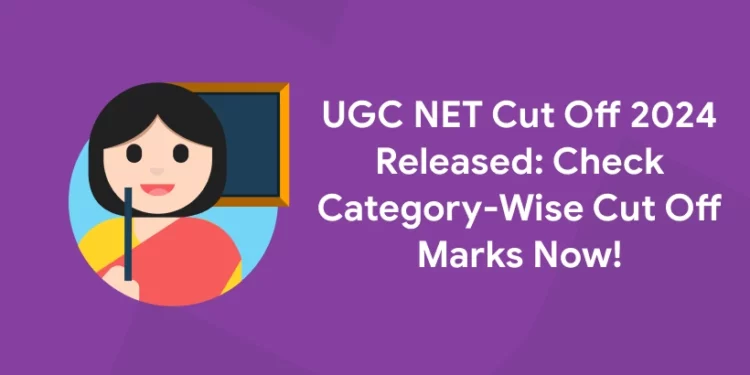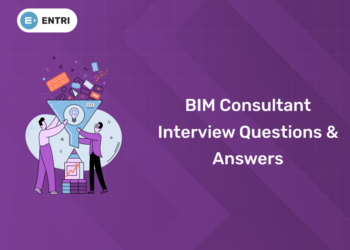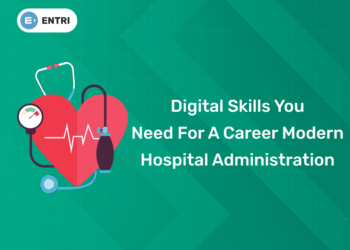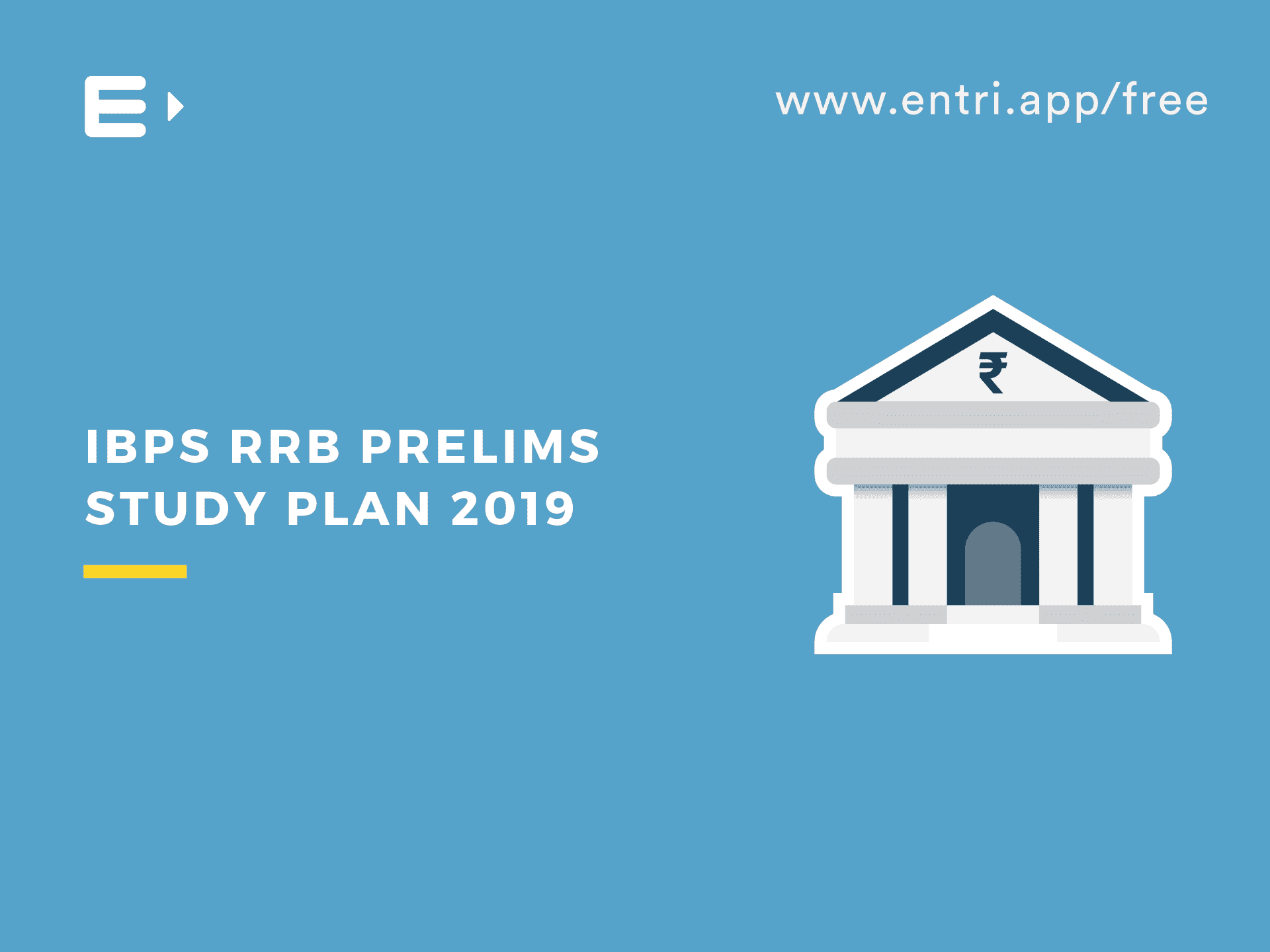Table of Contents
The National Testing Agency (NTA) conducts national level entrance “UGC NET” to justify the eligibility of Junior Researcher or Assistant Professor in India. UGC NET cut off is the minimum marks achieved by the candidates to qualify UGC NET Exam. The PDF link to download UGC NET cut off 2024 is given in this article. The subject-wise and category-wise cut off percentage marks along with the number of candidates who have appeared for each subject in all categories are given in the pdf.
UGC NET Cut Off 2024 Out
The UGC has finally released the official UGC NET cutoff marks 2024 for the National Eligibility Test or NET, which was conducted in June 2024. This is the day of reckoning for those of these candidates who, at the end of it all, want to pursue their careers in academics as Assistant Professors, Junior Research Fellows, or PhD scholars. Very importantly, this day saw the releasing of the cut off marks for all the subjects under UGC NET Result 2024. Download Link: UGC NET Cut Off Marks 2024.
UGC NET Expected Cut off 2024
UGC NET 2024 Cut Off will be published online by the authority after the entrance test. Separate category wise and subject wise merit lists will be drawn for the students successfully securing the cut off marks. In the below table we have mentioned the cut off marks for various categories as per last year trends:
| UGC NET 2024 Minimum Qualifying Marks | ||
| Category | Minimum qualifying marks (in %) | |
| Paper – I | Paper – II | |
| General candidates | 40% | 40% |
| OBC – NCL/PWD/ST/SC candidates | 35% | 35% |
UGC NET Previous Cut-Off
UGC NET 2019 exam was conducted on June 20, 21, 24, 25, 26, 27 and 28, 2019. Eligibility certificate will be issued to those candidates who will qualify UGC NET exam. The certificate will be valid for the next three years after declaration of result or issuance of the certificate. Check the PDF given below to know the subject-wise and category-wise cut off percentage marks along with the number of candidates who have appeared for each subject in all categories.
UGC NET Final Answer Key 2024 Out
After much wait, UGC NET 2024 Final Answer Key was finally published by the National Testing Agency on 12 October 2024. Consequently, the applicants may now check and download the pdf of final answer keys from the official website ugcnet.nta.ac.in. The final answer keys have finally been released as the National Testing Agency had already published the provisional answer keys in two phases. Then it closed the objection window on September 14, 2024.
UGC NET Qualifying Marks 2024
Candidates have to secure qualifying marks in two papers (Paper I and Paper II) of UGC NET in order to get shortlisted for JRF or Assistant Professor post. Check the table given below:
Apart from scoring a minimum qualifying marks, candidates must also score the minimum category wise UGC NET Cut off marks. The cut-off mark is determined by taking the following factors into consideration:
-
Total number of candidates appeared for the test
-
Total number of vacancies
-
Difficulty level of the question paper
Candidates who passes the UGC NET exam will be issued the eligibility certificate so that they can apply as Assistant Professor in any College/University across the country and avail JRF.
UGC NET 2024 Expected Cutoff
|
UGC NET 2024 Expected Cutoff
|
|||
|
Subjects
|
Category
|
JRF & Assistant Professor Cut-Off
|
Assistant Professor Cut-Off
|
|
Psychology
|
Gen/ UR
|
216
|
196
|
|
EWS
|
200
|
174
|
|
|
OBC(NCL)
|
200
|
174
|
|
|
SC
|
184
|
162
|
|
|
ST
|
178
|
158
|
|
|
Education
|
Gen/ UR
|
210
|
190
|
|
EWS
|
198
|
172
|
|
|
OBC(NCL)
|
196
|
172
|
|
|
SC
|
182
|
160
|
|
|
ST
|
184
|
162
|
|
|
Anthropology
|
Gen/ UR
|
194
|
174
|
|
EWS
|
190
|
160
|
|
|
OBC(NCL)
|
184
|
162
|
|
|
SC
|
166
|
150
|
|
|
ST
|
166
|
150
|
|
|
Sociology
|
Gen/ UR
|
218
|
200
|
|
EWS
|
208
|
184
|
|
|
OBC(NCL)
|
204
|
182
|
|
|
SC
|
192
|
168
|
|
|
ST
|
190
|
166
|
|
|
Social Work
|
Gen/ UR
|
196
|
178
|
|
EWS
|
188
|
162
|
|
|
OBC(NCL)
|
180
|
156
|
|
|
SC
|
172
|
142
|
|
|
ST
|
166
|
144
|
|
|
Philosophy
|
Gen/ UR
|
226
|
206
|
|
EWS
|
216
|
186
|
|
|
OBC(NCL)
|
210
|
186
|
|
|
SC
|
200
|
178
|
|
|
ST
|
180
|
158
|
|
|
Home Science
|
Gen/ UR
|
200
|
182
|
|
EWS
|
184
|
162
|
|
|
OBC(NCL)
|
182
|
162
|
|
|
SC
|
176
|
150
|
|
|
ST
|
176
|
150
|
|
|
Defence & Strategic Studies
|
Gen/ UR
|
224
|
208
|
|
EWS
|
216
|
194
|
|
|
OBC(NCL)
|
208
|
192
|
|
|
SC
|
214
|
192
|
|
|
ST
|
190
|
182
|
|
|
Population Studies
|
Gen/ UR
|
204
|
182
|
|
EWS
|
196
|
168
|
|
|
OBC(NCL)
|
186
|
168
|
|
|
SC
|
174
|
164
|
|
|
ST
|
172
|
160
|
|
|
Public Administration
|
Gen/ UR
|
200
|
182
|
|
EWS
|
192
|
168
|
|
|
OBC(NCL)
|
190
|
166
|
|
|
SC
|
172
|
150
|
|
|
ST
|
172
|
150
|
|
|
Maithili
|
Gen/ UR
|
218
|
202
|
|
EWS
|
202
|
182
|
|
|
OBC(NCL)
|
198
|
184
|
|
|
SC
|
212
|
198
|
|
|
ST
|
—
|
—
|
|
|
Management
|
Gen/ UR
|
180
|
164
|
|
EWS
|
170
|
148
|
|
|
OBC(NCL)
|
164
|
144
|
|
|
SC
|
154
|
136
|
|
|
ST
|
152
|
134
|
|
|
Sanskrit
|
Gen/ UR
|
196
|
178
|
|
EWS
|
186
|
164
|
|
|
OBC(NCL)
|
180
|
162
|
|
|
SC
|
170
|
152
|
|
|
ST
|
158
|
138
|
|
|
Punjabi
|
Gen/ UR
|
172
|
160
|
|
EWS
|
162
|
148
|
|
|
OBC(NCL)
|
160
|
144
|
|
|
SC
|
152
|
134
|
|
|
ST
|
136
|
136
|
|
|
Telugu
|
Gen/ UR
|
164
|
154
|
|
EWS
|
152
|
144
|
|
|
OBC(NCL)
|
154
|
140
|
|
|
SC
|
152
|
134
|
|
|
ST
|
146
|
136
|
|
|
Tamil
|
Gen/ UR
|
160
|
148
|
|
EWS
|
140
|
144
|
|
|
OBC(NCL)
|
150
|
138
|
|
|
SC
|
144
|
132
|
|
|
ST
|
—
|
132
|
|
|
Law
|
Gen/ UR
|
224
|
202
|
|
EWS
|
210
|
182
|
|
|
OBC(NCL)
|
206
|
180
|
|
|
SC
|
190
|
168
|
|
|
ST
|
182
|
160
|
|
|
Urdu
|
Gen/ UR
|
214
|
202
|
|
EWS
|
206
|
190
|
|
|
OBC(NCL)
|
206
|
190
|
|
|
SC
|
204
|
168
|
|
|
ST
|
190
|
178
|
|
|
Geography
|
Gen/ UR
|
202
|
182
|
|
EWS
|
192
|
164
|
|
|
OBC(NCL)
|
186
|
164
|
|
|
SC
|
176
|
152
|
|
|
ST
|
168
|
150
|
|
|
Mass Communication & Journalism
|
Gen/ UR
|
208
|
184
|
|
EWS
|
194
|
166
|
|
|
OBC(NCL)
|
186
|
166
|
|
|
SC
|
172
|
156
|
|
|
ST
|
166
|
152
|
|
|
Computer Science & Applications
|
Gen/ UR
|
180
|
162
|
|
EWS
|
166
|
146
|
|
|
OBC(NCL)
|
162
|
142
|
|
|
SC
|
150
|
136
|
|
|
ST
|
148
|
132
|
|
|
Economics
|
Gen/ UR
|
212
|
192
|
|
EWS
|
198
|
172
|
|
|
OBC(NCL)
|
196
|
170
|
|
|
SC
|
176
|
152
|
|
|
ST
|
172
|
150
|
|
|
History
|
Gen/ UR
|
212
|
198
|
|
EWS
|
198
|
194
|
|
|
OBC(NCL)
|
196
|
180
|
|
|
SC
|
176
|
170
|
|
|
ST
|
172
|
160
|
|
|
Political Science
|
Gen/ UR
|
200
|
195
|
|
EWS
|
195
|
190
|
|
|
OBC(NCL)
|
190
|
180
|
|
|
SC
|
180
|
170
|
|
|
ST
|
170
|
160
|
|
|
Commerce
|
Gen/ UR
|
210
|
198
|
|
EWS
|
200
|
194
|
|
|
OBC(NCL)
|
190
|
180
|
|
|
SC
|
180
|
170
|
|
|
ST
|
170
|
160
|
|
|
English
|
Gen/ UR
|
200
|
195
|
|
EWS
|
195
|
190
|
|
|
OBC(NCL)
|
190
|
180
|
|
|
SC
|
180
|
170
|
|
|
ST
|
170
|
160
|
|
|
Hindi
|
Gen/ UR
|
195
|
–
|
|
EWS
|
190
|
–
|
|
|
OBC(NCL)
|
180
|
–
|
|
|
SC
|
170
|
–
|
|
|
ST
|
160
|
–
|
|
UGC NET 2024 Overview
| UGC NET 2024 Exam Summary | |
| Conducting Body | National Testing Agency (NTA) |
| Exam Name | UGC NET June 2024 |
| Full-Form | University Grants Commission National Eligibility Test |
| Exam Level | National |
| Exam Frequency | Twice a year |
| Mode of Exam | Online – CBT (Computer-Based Test) |
| Registration Dates | 20th April to 10th May 2024 |
| Exam Date | 16th June 2024 |
| Exam Duration | 180 minutes |
| Exam Time | Shift 1 – 09:00 am to 12:00 noon Shift 2 – 03:00 pm to 06:00 pm |
| Language/Medium of Exam | English and Hindi |
| No. of Subjects | 83 subjects |
| Exam Purpose | Determine the eligibility of candidates for posts of only Assistant Professor or both Junior Research Fellowship (JRF) and Assistant Professor in Indian universities and colleges |
| No. of Test Cities | 239 |
| Official Website | www.ugcnet.nta.nic.in |
Sign Up for Entri App! Start your UGC NET Exam preparations now!
UGC NET Syllabus 2024
UGC conducts the National Eligibility Test as two papers. Candidates who are appearing for the examination should score good marks in both papers to score a good rank in the final rank list.
Paper I syllabus
Paper I is on General Research Aptitude and Teaching skills. These are the topic that has to be covered for this section.
UGC NET Paper-I Unit wise Subjects
Unit-I: Teaching Aptitude
- Teaching: Concept, objectives, levels of teaching (memory, understanding & reflective), characteristics along with basic requirements
- Learner’s characteristics: Characteristics of adolescent & adult learners (academic, social, emotional & cognitive), individual differences
- Factors affecting teaching related to Teacher, Learner, Support material, Instructional facilities, Learning environment as well as Institution
- Methods of teaching in universities of higher learning: Teacher centered against. learner-centered methods; offline against online methods (Swayam, Swayamprabha, MOOCs, etc.).
- Teaching support system: Traditional, modern as well as ICT based
- Evaluation systems: Elements & types of evaluation, evaluation in Choice Based Credit System as in higher education, computer-based testing, innovations which take place in evaluation systems
Unit-II: In case of Research Aptitude
- Research: Meaning, Types, & characteristics, positivism as well as a post-positivist approach to research
- Methods of research: Experimental, descriptive, historical, qualitative, and quantitative methods
- Steps for conducting a research
- Thesis & article writing: Format as well as styles of referencing
- Application of ICT in the research field
- Ethical research
Unit-III: Comprehension
- A passage of text shall be given. Questions shall be asked from the passage from where it is to be answered
Unit-IV: Communication
- Communication: Meaning, types & characteristics of communication
- Effective communication: Verbal & non-verbal, inter-cultural & group communications, classroom communication
- Barriers in case of effective communication
- Mass-media & society
Unit-V: Mathematical Reasoning & Aptitude
- Types of reasoning
- Number series, letter series, codes & relationships
- Mathematical aptitude (fraction, time and distance, ratio, proportion & percentage, profit & loss, interest & discounting, averages, etc.)
Unit-VI: Logical Reasoning
- Understanding the structure of arguments: Argument forms, the structure of categorical propositions, mood & figure, formal with informal fallacies, uses of language, connotations as well as denotations of terms, the classical square of opposition
- Evaluating & distinguishing deductive & inductive reasoning
- Analogies
- Venn diagram: Simple & multiple uses for establishing the validity of arguments
- Indian Logic: Means of knowledge
- Pramanas: Pratyaksha (Perception), Anumana (Inference), Upamana (Comparison), Shabda (Verbal testimony), Arthapatti (Implication) & Anupalabddhi (Non-apprehension)
- Structure with kinds of Anumana (inference), Vyapti (invariable relation), Hetvabhasa (fallacies of inference)
Unit-VII: Data Interpretation
- Sources, acquisition & classification of data
- Quantitative & qualitative data
- Graphical representation (bar-chart, histograms, pie-chart, table-chart & line-chart) along with mapping of the required data
- Data interpretation
- Data & governance
- Unit-VIII: Information and Communication Technology (ICT)
- ICT: General abbreviations & terminology
- Basics of Internet, Intranet, E-mail, Audio & Video-conferencing
- Digital initiatives in terms of higher education
- ICT & Governance
Unit-IX: People, Development and Environment
- Development & environment: Millennium development with Sustainable development goals
- Human and environment interaction: Anthropogenic activities & their impacts on the environment
- Environmental issues: Local, regional & global; air pollution, water pollution, soil pollution, noise pollution, waste(solid, liquid, biomedical, hazardous, electronic), climate change & its socio-economic and political dimensions
- Impacts of pollutants on human health
- Natural & energy resources: Solar, Wind, Soil, Hydro, Geothermal, Biomass, Nuclear & Forests
- Natural hazards & disasters: Mitigation strategies
- Environmental Protection Act (1986), National Action Plan on Climate Change, International agreements/efforts -Montreal Protocol, Rio Summit, Convention on Biodiversity, Kyoto Protocol, Paris Agreement, International Solar Alliance
Unit-X: Higher Education System
- Institutions of higher learning & education in ancient India
- Evolution of higher learning & research in post-independence India
- Oriental, conventional & non-conventional learning programs in India
- Professional, technical along skill-based education.
- Value education & environmental education
- Policies, governance, as well as administration
Click here to know more about Govt Exams!
Paper-II Syllabus
In the paper II portion of the UGC NET examination, candidates can select an atopic as their elective from a total of 84 subjects. The details regarding the complete list of electives are available from the UGC Official website. Here are some of the most important portions as well as topics that are usually covered in Paper II of the UGC NET examination 2024.
| Names of the Subject | Important Topics of the UGC NET Paper-II |
| Commerce | Accounting along with Auditing |
| Banking & Financial Institutions | |
| Income-tax with Corporate tax Planning | |
| Business Statistics & Research Method | |
| Legal Aspects of Business for understanding business | |
| English | Fiction as well as Short Stories |
| Cultural Studies Topic | |
| Non-Fictional Prose Topic | |
| Literary Theory Post World War II – Summary | |
| Literary Criticism Topic | |
| Computer Science | Theory of Computation & Compilers |
| Data Structures with Algorithms | |
| Data Communication & Computer Networks | |
| DBMS (Database Management System) | |
| System Software and Operating System | |
| Management | Organizational Behaviour Topic |
| Human Resource Management (HRM) | |
| Business Plan & Feasibility Analysis | |
| Financial Management as well as Concept and Functions | |
| Marketing Topic | |
| Economics | Microeconomics Topic |
| Macroeconomics Topic | |
| Indian Economics | |
| Growth and Development with Economics | |
| Public Economics Topic | |
| Education | Curriculum Studies Topic |
| Research in Education Topic | |
| Teacher Education Topic | |
| Learner & Learning Process | |
| History, Politics & Economics of Educational | |
| Library Science | Research Methods Topic |
| Library Automation topic | |
| Financial Management in Libraries Topic | |
| Right to Information Act (RTI) Topic | |
| Mapping of Subjects in Library Classification Schemes – DDC, UDC as well as CC | |
| Political Science | Comparative Politics Analysis Topic |
| Political Institutions in India Topic | |
| Political Theories | |
| Governance & Public Policy in India | |
| Public Administration Topic | |
| HRM(Human Resource Management) | Collective Bargaining Topic |
| Job Analysis Topic | |
| Labour Welfare Topic | |
| Labour Legislation Topic | |
| Trade Unions Topic | |
| Law | Constitutional & Administrative Law |
| Public International Law & IHL (International Humanitarian Law) | |
| Family Law Topic | |
| Jurisprudence Law | |
| Environment & Human Rights Law |
Click here to get the latest updates on UGC NET Examination!
Entri is an award-winning online platform which helps students to prepare for various competitive examinations and keeps them updated on various exam schedules. Practice question papers and mock tests for Kerala PSC, SSC CHSL, SSC CGL, IIT JEE Mains, NEET, KEAM, and Comedk are available for students to know where they stand and prepare accordingly. Doubt forums are also made available to students to provide a platform for them to interact with experts and clear all their doubts and queries. A suitable app to help you stand out in various competitions.
| UGC NET Exam Information Links | |
| UGC NET Notification | UGC NET Mock Test |
| UGC NET Syllabus | UGC NET Video Course |
| UGC NET Exam date | UGC NET Study Materials |
| UGC NET Application Form | UGC NET Interview Questions |
| UGC NET Vacancy | UGC NET Job Profile |
| UGC NET Admit Card | UGC NET Salary |
| UGC NET Study Plan | UGC NET Preparation Tips and Tricks |
| UGC NET Previous Question Papers | UGC NET Result |
| UGC NET Best Books | UGC NET Answer key |
| UGC NET Eligibility Criteria | UGC NET Exam Analysis |
| UGC NET Selection Process | |












